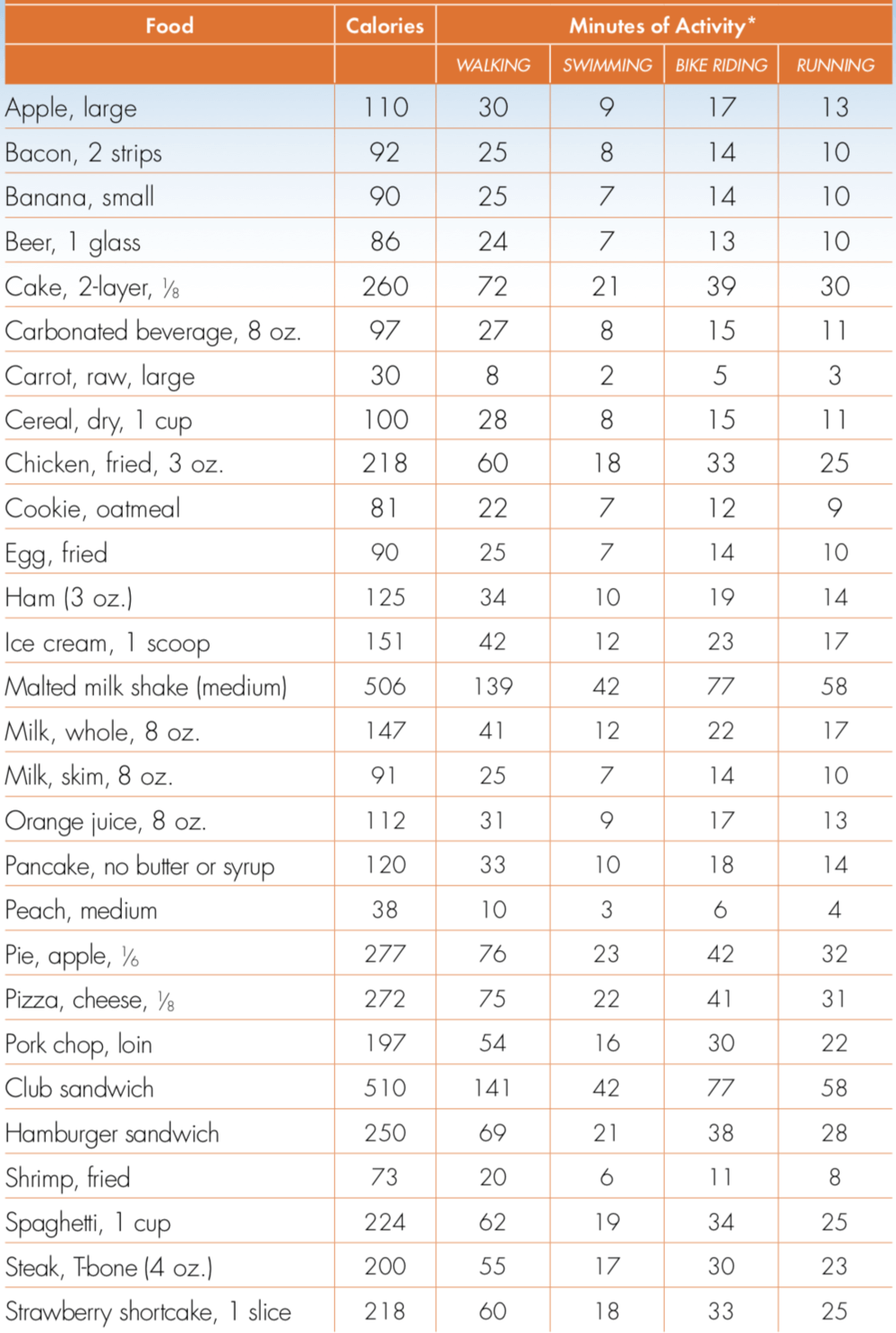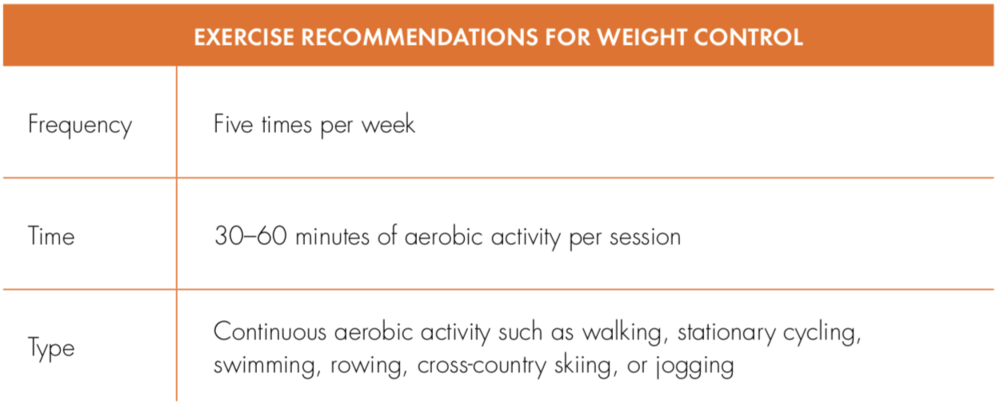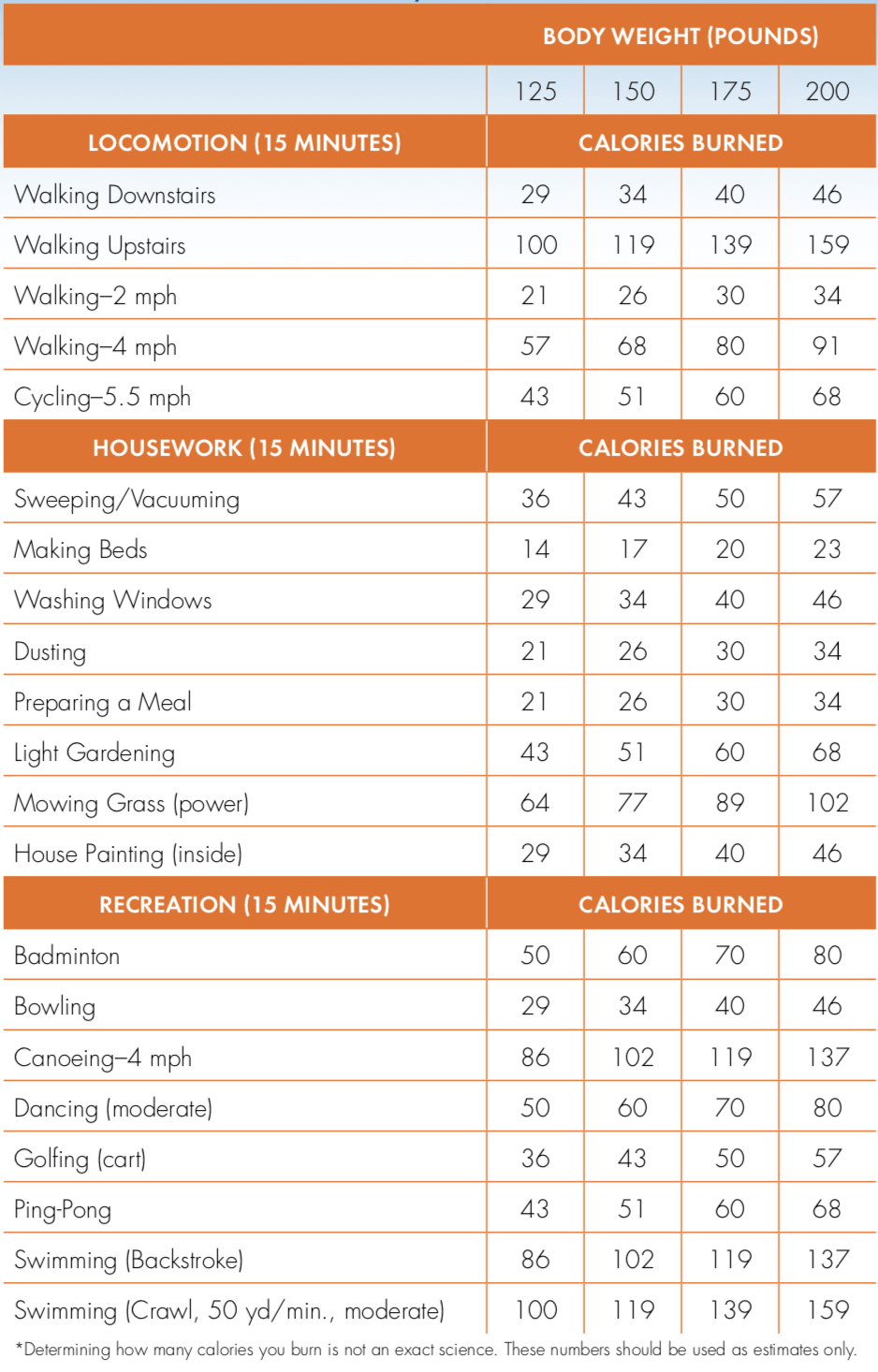How Much Exercise is Enough?
- Calculate your maximum pulse rate capacity. Do this by subtracting your age from 220. Then, multiply
that rate by 70 percent to determine a target pulse rate for a moderate activity level.
- Learn how to count your actual pulse rate:
- Put two fingers high up on one side of your neck, just under the jawbone, where you can feel the
carotid artery pulsing.
- Count the heartbeats you feel for 10 seconds, then multiply by 6 to get your pulse rate count
per minute.

- Continue to exercise regularly and challenge yourself to increase your fitness level along with your
target pulse rate from this starting point.
Exercise required to burn off a given number of calories (based on a person weighing 150 lbs.):
- Walking–5.0 calories per minute (297 calories per hour).
- Swimming–10.0 calories per minute (603 calories per hour)
- Bike Riding–7.4 calories per minute (441 calories per hour)
- Running–11.2 calories per minute (675 calories per hour)
*IMPORTANT: Before beginning any exercise program, consult your physician – especially if you are over 35
or have not been exercising regularly*
What Exercise Can Do For You
- Exercise burns calories.
- Aerobic exercise burns fat.
- Exercise can increase muscle mass.
- Moderate exercise helps control your appetite.
- Helps cope with stress and counters depression–common triggers of overeating.



